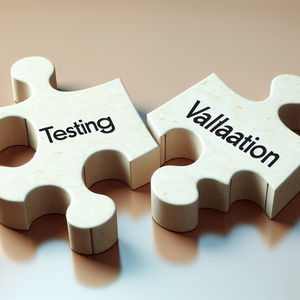Beyond the Paycheck: The Emotional Rewards of Being a Midwife

Midwives are integral to one of the most significant moments in a person's life: childbirth. Their role extends beyond clinical responsibilities; it encompasses providing emotional support to families during a vulnerable and transformative period. Midwives often develop deep relationships with their clients, offering guidance and reassurance throughout pregnancy, labor, and postpartum care. This emotional bond fosters a sense of trust and safety, allowing parents to feel empowered and confident in their birthing choices. For instance, consider a midwife working in a community setting who assists a family through multiple pregnancies. This continuity of care allows her to build lasting relationships with the family, enhancing their birthing experience and creating a robust support network. Such connections not only enrich the experience of childbirth but also contribute to the overall well-being of families, allowing them to navigate the challenges of new parenthood with confidence.
Job Satisfaction and Fulfillment
The satisfaction that midwives derive from their work is immense and often unparalleled. Many midwives report a strong sense of purpose and fulfillment in helping to bring new life into the world and supporting families in their journeys. The joy of witnessing a birth, combined with the knowledge that they have positively impacted a family’s life, can be incredibly rewarding. Research indicates that healthcare professionals who experience a strong sense of purpose in their work are more likely to report higher levels of job satisfaction. Midwives often experience this sense of purpose through the gratitude expressed by the families they assist. Whether it’s a heartfelt “thank you” or the joyous celebration of a new child, these moments create lasting memories that fuel a midwife's passion for their work. The emotional rewards of this profession often outweigh the financial compensation, as many midwives find themselves deeply satisfied with their contributions.
The Impact on Communities
The benefits of midwifery extend beyond individual families to the broader community as well. Midwives often serve as advocates for maternal and infant health, addressing health disparities and promoting safe birthing practices. They contribute to community education on vital topics such as prenatal care, breastfeeding, and newborn care, empowering families with knowledge that fosters healthier outcomes. For example, midwives involved in community outreach programs play a crucial role in bridging gaps in access to care, particularly in underserved areas. Their work not only enhances the health of mothers and babies but also strengthens the social fabric of the community, fostering a culture of support and care. By providing education and resources, midwives empower families to make informed decisions about their health, leading to better overall outcomes.
Resilience and Empowerment
The challenges of midwifery—including navigating complex emotional landscapes, managing high-stress situations, and confronting systemic issues in healthcare—cultivate resilience among practitioners. Midwives often develop strong coping strategies and emotional intelligence, skills that serve them well both professionally and personally. Moreover, midwifery empowers women, both in the roles of midwives and in advocating for their clients. As a profession largely dominated by women, midwives often serve as role models and mentors for aspiring healthcare providers. This empowerment extends to the families they work with, as midwives encourage parents to take an active role in their care and decisions, fostering a sense of agency that can be transformative.
While financial considerations are undoubtedly important in any career, the emotional rewards of being a midwife are profound and invaluable. From the deep connections formed with families to the satisfaction of making a meaningful impact in communities, midwifery offers a unique blend of fulfillment that transcends a paycheck. For those considering this noble profession, it is essential to recognize that the heart of midwifery lies in the emotional connections and transformative experiences that shape lives for generations to come. By embracing the emotional aspects of their work, midwives not only enrich their own lives but also contribute to the well-being of families and communities, creating a lasting legacy of care and compassion. In a world where the financial aspect often dominates the conversation, midwives remind us that the most rewarding aspects of life—such as connection, purpose, and impact—cannot be measured in dollars and cents.
Labor and Delivery Nurse
Hospitals, birthing centers, and healthcare clinics
Core Responsibilities
Provide direct care to women during labor and delivery, monitoring both mother and baby’s vital signs.
Assist with the birthing process, including managing pain relief options and guiding parents through delivery.
Educate families on postpartum care and newborn health.
Required Skills
Strong clinical skills in maternal-fetal care and childbirth.
Excellent communication abilities to provide emotional support and education.
Certification in Advanced Cardiac Life Support (ACLS) and Neonatal Resuscitation Program (NRP).
Certified Nurse Midwife (CNM)
Hospitals, birth centers, and private practice
Core Responsibilities
Provide comprehensive prenatal, delivery, and postpartum care as well as gynecological care for women.
Develop personalized birth plans in collaboration with clients, ensuring informed choices.
Advocate for families, promoting healthy practices and addressing any medical concerns.
Required Skills
Advanced nursing degree and certification as a nurse-midwife (CNM).
Strong interpersonal skills to build trustful relationships with families.
Knowledge of both midwifery practices and traditional obstetrics.
Maternal Child Health Educator
Non-profit organizations, community health agencies, and public health departments
Core Responsibilities
Conduct community workshops and classes on prenatal health, breastfeeding, and newborn care.
Develop educational materials and resources tailored to the needs of diverse communities.
Collaborate with healthcare providers to improve maternal and child health outcomes in the community.
Required Skills
Background in nursing, public health, or a related field.
Strong presentation and communication skills to engage diverse audiences.
Familiarity with cultural competency and community health initiatives.
Perinatal Mental Health Specialist
Mental health clinics, hospitals, and private practices
Core Responsibilities
Provide counseling and support for expecting and new parents dealing with mental health issues such as postpartum depression and anxiety.
Develop treatment plans that incorporate family dynamics and individual needs.
Conduct group therapy sessions to foster community support among parents.
Required Skills
Licensure in psychology, social work, or counseling with specialization in perinatal mental health.
Empathy and strong listening skills to create a safe space for clients.
Familiarity with therapy modalities specific to perinatal mental health.
Doula
Independent practice, birth centers, and community health organizations
Core Responsibilities
Provide emotional and physical support to mothers before, during, and after childbirth.
Educate families on childbirth options and help them create a supportive birth environment.
Assist in postpartum recovery by offering practical help and guidance.
Required Skills
Certification in childbirth education and doula training.
Strong advocacy skills to support clients’ birth choices.
Excellent interpersonal skills to foster trust and comfort.


